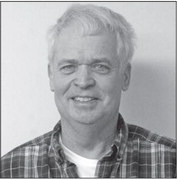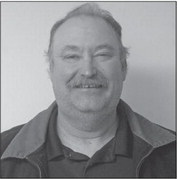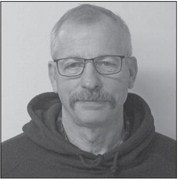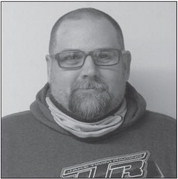Four vying for two seats on Holton board


Four candidates are running for two seats on the Holton town board during the April 6 election.
The incumbents are Gene Peissig, 60, who was first elected in 2019 and is semiretired from Bob’s Dairy Supply; and Pat Tischendorf, a 64-year-old dairy farmer who has sat on the board for eight years.
The challengers are dairy farmer Ken Tesch, 57, and Marty Schwantes, 47, a deputy with the Clark County Sheriff’s Department. Schwantes has previously served four years on the Abbotsford City Council.
Why have you decided to run for office in the town of Holton?
Tischendorf said he enjoys being a town supervisor and representing Holton on the Central Fire and EMS board, which he has done for the past six years. He said he also likes helping residents address problems they have.
“With my background in dairy farming and always dealing with day-to-day issues that seems to happen on a farm, being a township supervisor is very similar.”
Tischendorf puts a high priority on maintaining township equipment, doing building repairs and “always trying to improve our 50-plus miles of roads, bridges and culverts.”
Peissig: When he first ran for the board in 2019, he felt like the board members weren’t concentrating on the roads like they should.
“They had different agendas.” He says it’s gotten “a little” better in the two years since he got on the board.
Tesch says his family is “civic-minded,” noting that his daughter Liz once sat on the town board and volunteers ever year for Colby Cheese Days.
“Everybody should serve their community in some fashion. Not that you need to be on the board, but when you’re community calls, you should step up. Everybody should. I really believe that’s important.”
Tesch said he respects all of the people in the township, regardless of their political points of view, and he always tries to get along with his neighbors.
“I’m not running against somebody or against something. I’ve been on other boards before. I’m pretty outspoken, but I always allow other people to voice their opinions. I think that’s part of the problem in this country. We need to listen to everybody.”
Schwantes: “Some of my neighbors have approached me about some issues that are taking place. I talked to them a little bit and heard that maybe some of the supervisors weren’t interested in running again. I showed up to the (caucus) meeting thinking ‘Well, we’ll see. If I get nominated, I’ll accept it.’ Why should voters choose you over your opponent? What makes you the best candidate for the job?
Tischendorf: “The one advantage I have is that I have gained a lot of experience the last few years. I am very comfortable contacting the county when we need their help.”
In his time as a town official, Tischendorf said he’s helped thaw out frozen culverts, replace culverts, clean ditches, fix road washouts after storms and remove downed trees blocking the road. He said he’s also helped track gravel when it’s being spread on the roads.
“I take a quite bit of township equipment to the local fabrication shops to get rebuilt instead of buying new.”
Tischendorf said he returns residents’ phone calls in a timely manner, and, if needed, he’ll go out to their homes to address their concerns.
Peissig: “I sit on a number of boards and bring business experience and community involvement to the table.” He is a member of the Dorchester Park Board, Dorchester Days committee and formerly sat on the Midnight Riders Snowmobile Club board.
Tesch said being a farmer in a township with a long tradition of agriculture gives him the right perspective to serve on the board. He said his family has been on their farm for 35 years, and he knows what it takes to bridge the gap between the farming community and others.
“Farmer-to-farmer, we need to work together to make our community stronger. I think that’s one of my strong things.”
Tesch said he also understand finances and the importance of spending money correctly. He said he doesn’t have anything against any of the existing town offi cials, but he’s willing to speak his mind in a respectful manner.
“I think it’s good to have a healthy debate on different issues. I don’t think people should discriminate because your opinion is one way and theirs is different. America was founded on a principle that you can say your opinion...and you can still be friends with somebody. That’s something we’ve lost.”
Schwantes: “All the rest of them have their strengths, that’s for sure. I don’t think anyone is better than anyone else. What I can bring to it is maybe just a little bit different look, a little different perspective. To me it’s important to listen. You need to listen to everybody and sometimes you’re going to make unpopular decisions when the majority wants something. You’ve got to be willing to stand up and do that.”
“I think communication is huge, obviously. You have to be willing to talk, you have to be willing to listen. I think I bring that through a lot of life experience and having gone through this at a different level. I can bring that ability to communicate and work with others.”
What do you see as the biggest issues facing the township? What role do you have in addressing in those issues?
Tischendorf said the township has two major road projects planned for this year that need to be monitored by town officials. One is to replace a wooden bridge on Holton Road and the other is to replace four failing large culverts on Fence Road just west of CTH F.
Tischendorf said he and Peissig agreed that the culverts needed to be replaced last fall, but it was too late in the year to bid out the project. He said they helped apply for funding from the county, which resulted in the township qualifying for $60,000 to replace the culverts.
“And, finally, there is a small LRIP (Local Road Improvement Project) project on Cemetery Road. It is in the process of being advertised for bids.”
Peissig: “The biggest issues I feel are roads and road improvements.” At this time, he said he feels as though this year’s upcoming projects are being handled correctly.
Tesch said, no matter what, the township is going to be face changes from the top down, and there needs to be a grassroots approach when responding.
“Whenthestatecomesdownwithmandates — either on water quality or agriculture or septic systems — people want to know who they can talk to. I think it’s important to have representation at the local area that will fight for you.”
Tesch said township officials need to be able to stand up and speak out when they disagree with something at the county
level, but that also requires constituents who are willing to let elected representatives know when something is wrong.
“If you’re going to complain about something and you’re not going to agree with something, then step up to a leadership position. Or complain to the right people; don’t complain to the people at the bar. Complain to the people that can make a difference. As a public servant, you’re supposed to represent all people — not a certain group, but all people within the community.”
Tesch said it’s not always easy to come up with the perfect solution to a problem because you have to consider many different perspectives, not just your own.
“I don’t want to be harping on the negatives always. We’ve done some good things. We’ve had some issues. They’ve rectified those issues. Those are positives.”
Schwantes: “To me, it feels like there’s a lot of tension with the board. It seems very adversarial, one group against the other. I don’t know the reason, I’ll say that right now. I don’t know what that friction is about, but it’s obvious when you attend a meeting.”
“When you see that on a regular basis in those meetings, it’s hard to accomplish things. I don’t think that’s in the best interest of the people of the township. I think that needs to be addressed, fixed, corrected, and they need to get back to what’s important to the people of the town.”
“I think having some different people in there can maybe help that out. I’m not singling anybody out in particular; it’s just kind of a general feeling I’ve seen when I’ve gone to the meetings.”
What is your plan for working with other town officials to make sure the town’s business is getting taken care of?
Tischendorf said he and Peissig have a good working relationship when it comes to township business.
“We both agree that the roads should be our first priority.”
Tischendorf said there will always be “disagreements and differences of opinions” on certain issues, but “you try your best to hash out the differences during the meeting.”
“Sometimes it’s best to table the issue and wait until the next meeting. In the meantime, it allows a person to get more information and hopefully then make a more informed decision.”
Tischendorf said applying “good old commonsense” helps, and so does consulting the Wisconsin Township Association, which he says is a great resource when trying to make the right decisions.
“You try to balance the township’s interest along with the person or group that is being affected. And, in the end, whether you agree or disagree, you should respect that person’s opinion and try and move forward.”
Peissig: “That’s a tough one, because we don’t see eye-to-eye right now, so I’d prefer not to answer that one at all. I have no comment on that. Less drama is what I’m looking for.”
Tesch said communication and integrity should be town officials’ top goals.
“You need to communicate in a fashion that is professional, but at the same point, making sure there isn’t a gray area. Everybody doesn’t have to agree. It’s OK to have a different opinion.”
“If you’re on the winning side, you have to be a gracious winner, and if you’re on the losing side, you have to be a gracious loser and understand that this is how it works.”
Tesch noted that he did not seek this position on his own, but was nominated by people who wanted to see him run.
“If I don’t get elected, it won’t be the end of the world, but I would hope that other people would run and throw their hat in the ring and accept the challenge to represent your community.”
Tesch said it’s important for town offi cials to “know how things work” and why things are the way they are. He said it’s also crucial that residents “represent ourselves without dragging each other down, pitting farmers against farmers.”
“Holton has a very long tradition of dairy and so we want to keep that heritage going. At the same point, we want to get along with our city cousins. As urban sprawl happens, we have to address some of those issues too.”
Schwantes: “It comes down to communication. You’re not always going to agree on things, and I understand that. There is such a thing as healthy differences, but when it get to the point where the bickering and the arguing overpower the issue, that in and of itself is an issue. If I get on there, I want it to be open. I want to clear the air and start over. Let’s move past whatever the issues have been. Let’s start working forward to make good decisions, financially responsible decisions, ones that the people want — and make sure we’re listening to them.”

Ken Tesch

Gene Peissig

Marty Schwantes
